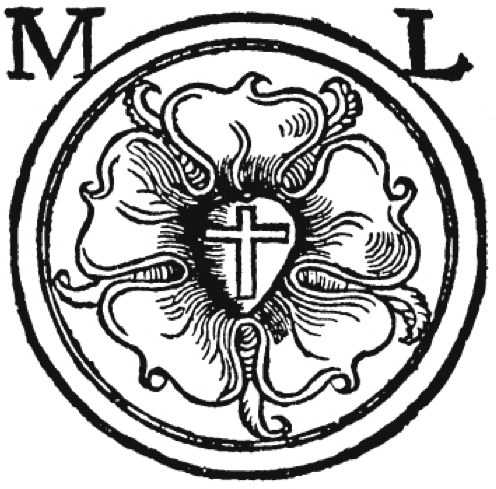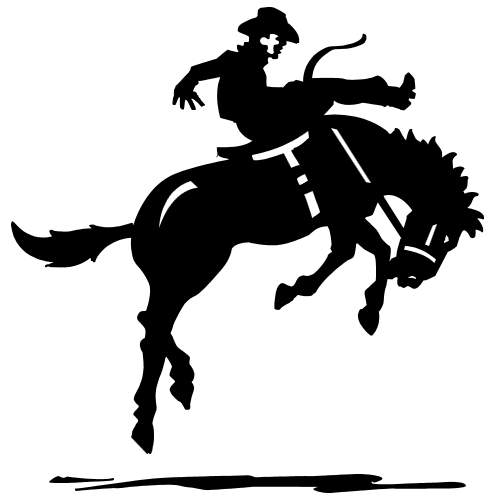The Christian in Community: And Is Man a Lord?
The impulse to give names to things is fully human. God brought the animals to Adam to see what he would call them, and whatever he called them, that was their name. The naming of things obligates us to use words truthfully. We are commanded by God to give things their proper names. And in using such names and words truthfully, we also come to understand what the thing is and what it is for. This is how God teaches us to use words.
It is in the exercise of this lordship that we have also given names to the seasons or eras of human history. We gave the name Modernism to the recent time when man rejected past wisdom for future gain, when he gloried in his ability to understand and use the world around him through applied science. Modernism was the age of science and technology. It was an optimistic season.
But when the two World Wars and the Cold War showed us that science could not solve the evils of human nature, we began to look elsewhere for a better future. We gave a new name to the season that followed: Post-Modernism. Modernism and its optimism is dy-ing. And in its place is a time when man seeks not only to master Na-ture and Technology, but Human Nature itself. Our world recognizes that Man himself must be changed. His language, his customs, his religion, his morality, and Man’s very nature must be transformed. We need a new humanity. Only by such transformation can the evils of human nature and human society be overcome. The world makes this utopian calculation as though there were no God and no divinely revealed wisdom, as though Man were not God’s creation.
Some have thought to call this season of history Post-Christian, because they perceive that Christianity—Christian doctrine and Christian morality—is under attack. An unbelieving world wants to associate the evils of human nature with Christianity, because the Christian Scriptures establish the orders of creation and condemn man’s sin. They blame Christianity for sin’s consequences.
But Christianity has always been under attack. The world has never loved Christ or his Christians. “Why do the nations rage and the peoples plot in vain? The kings of the earth set themselves, and the rulers take counsel together against the LORD and against his Christ, saying, ‘Let us burst their bonds apart and cast away their cords from us’” (Psalm 2:1–3). Even when Christendom was able to exercise its enormous power to do good, the corruptors of God’s Word were always at work.
Our time is not Post-Christian. It may turn out that this season of the world’s history is as fully Chris-tian as any because of the brightness that the light of the gospel brings to this darkened humanity. Christ has promised that his church will abide until the End. “He who sits in the heaven laughs; the Lord holds them in derision. Then he will speak to them in his wrath, and terrify them in his fury, saying, ‘As for me, I have set my King on Zion, my holy hill’” (Psalm 2:4–6). Every season of the world is a Christian season, because Christ our Brother and Lord is seated on the throne of God in heaven and rules over all things for the sake of his Church (Ephesians 1:22–23).
But our times are marked by evils that we should name. Instead of Post-Christian, we might call this season of history Post-Human. We are witnessing man’s efforts to change human nature itself by the applied sciences of psychology, pharmacology, and politics. It is a perilous project, and its end is death (Proverbs 14:22).
C. S. Lewis reminds us that the price of our gaining mastery over human nature is the abolition of man himself. It begins with man’s attempt to conform reality (Nature) to his desires. “For the wise men of old the cardinal problem had been how to conform the soul to reality, and the solution had been knowledge, self-discipline, and virtue. For magic and applied science alike the problem is how to subdue reality to the wishes of men: the solution is a technique; and both, in the practice of this technique, are ready to do things hitherto regarded as disgusting and impious—such as digging up and mutilating the dead” (C. S. Lewis, The Abolition of Man, chapter 3).
That is, we are now using science just like one would use magic, to control and subdue reality—the Creation—to our will, like the alchemists of the Renaissance trying to turn lead into gold. It has likely escaped our notice how very much like the magicians we have become in our desire to force Nature and reality to con-form to our own wishes and desires. And we have undoubtedly failed to see how much of our humanity has been abolished in our pursuit of these techniques and technologies. Consider the consequences of the follow-ing otherwise harmless commonplaces of our lives today.
We use the automobile to master the realities of time and distance, but the cost to our humanity is that our bodies deteriorate through lack of walking and exercise. The abundance of time- and labor-saving devices has made us so busy that we have no time or energy left for the truly human activities of eating meals togeth-er, sharing the bonds of family and loved ones, conversing with neighbors, sharing in the community of our congregations, meditating on God’s Word, and the like. The world of people is opened to us through televi-sion, computer, and mobile screens, while we become increasingly lonely, unsociable, and isolated by our de-pendence upon and addiction to those very same screens. Schools have discovered that by locking up stu-dents’ cell phones during the school day, the students are not only more focused on their studies, but they actually start talking to one another again; they regain something of their fading humanity. Or again, internet technologies give us the power of “knowing things” instantly and constantly, while we become increasingly ignorant of true human wisdom and knowledge. In short, the varied inventions of applied science exercise far more power over our humanity than we realize.
Our applied science, like magic, is abolishing our humanity. In our eager embrace of this magical power to subdue Nature to our own will we have long since forgotten how to be disgusted at the mutilation of dead bodies and other such impieties. Our Post-Human world has moved on to perverting marriage with disgusting pseudo-marriage, and the sanctified marriage act with disgusting pseudo-sex. And it seems that even C. S. Lewis did not foresee the wholesale “disgusting and impious” practices of poisoning and dismem-bering living children in their mothers’ wombs or of mutilating and castrating the bodies of little children and teenagers whose hearts and minds have been twisted and crushed by the misadventures of broken families, sexual trauma, chemical side-effects, and other unseen spiritual assaults upon their physical bodies. These powers of science (or magic!) are thoroughly inhuman.
It is prudent for us to remember again that what we call Nature is simply and completely the Creation of the living God, and that we too are His Creatures under His Lordship. We, as Man, are called to lordship over God’s creation in Genesis 1, but we dare never forget that our lordship is under His. We are not com-manded to change the creation, but to be gardeners and shepherds and stewards under the Master Gardener, Shepherd, and Creator-King. Even unenlightened man—without Holy Scriptures—can and should under-stand and conform his life to the realities of the created world and ultimately fulfill his obligation to his and its Creator God (Romans 1).
How much more the Christian, who has been given this divine wisdom in bright, clear, and living col-ors in the Holy Scriptures. After all, we Christians know Divine Wisdom Himself in the Holy Scriptures and in the flesh and blood of Jesus Christ. We know eternal truths: “I will tell of the decree: The LORD said to me, ‘You are my Son; today I have begotten you. Ask of me, and I will make the nations your heritage, and the ends of the earth your possession. You shall break them with a rod of iron and dash them in pieces like a pot-ter’s vessel’” (Psalm 2:7–9). The eternal Son of God is the Lord of Creation.
We should never have embraced the optimism of Modernism, even when we benefited in many ways by its technological advances. Nor should we embrace the despair of Post-Modernism or Post-Humanism in its abolition of man. Christians have been given timeless wisdom. We should use the gifts of applied sci-
ence—machine and medicine and screen—with prudence, but not become their slaves. They are not human, nor can they improve our humanity. If we are not careful, we will give them the power of gods, power to di-minish us, pervert us, enslave us, destroy us. If we allow them the power of gods, we should not be shocked if they turn out to have the power of demons.
The orders and seasons of the creation continue as we await our Lord’s return in glory. The creation is still upheld by the Word of him who is the eternally begotten Son of the Father (Psalm 2:7, Hebrews 1:1–3). He is the measure and goal of our perfected humanity (Ephesians 4:13). As we consider the ravages of sin un-der Modernism and in the present Post-Human season, we Christians turn in faith to Christ and his Word, as the Holy Spirit teaches us in Psalm 2: “Now therefore, O kings, be wise; be warned, O rulers of the earth. Serve the LORD with fear, and rejoice with trembling. Kiss the Son, lest he be angry, and you perish in the way, for his wrath is quickly kindled. Blessed are all who take refuge in him” (Psalm 2:10–12).
REFORMATION 500

In 1524 Luther’s productivity embodied the truth in the saying, “If you want to get something done, ask a busy person to do it.” As we have reviewed, Luther translated, improved, and wrote numerous congregational hymns throughout the first half of the year. By late summer his work was published with others in Geistliches Gesangbuchlein, “Little Spiritual Hymnbook.” He was also doing visitations in Lutheran congregations in June and again in Au-gust.
Luther also returned officially to his teaching duties at Wittenberg University that summer. He had been forced to stop lecturing after his trial and bold confession at Worms in April 1521. When he returned from the Wartburg Castle in March 1522 he still was not allowed to give lectures, though in part his attention had been given to translating the Bible. In February 1524 he had begun lecturing to a small “familiar circle” on the book of Deuteronomy, which also resulted in a commentary published in 1525. He lectured students on the Minor Prophets (Hosea through Malachi) Summer 1524 through Summer 1526. Many of these lectures eventually became the basis for published commentaries. Luther’s reengagement with the university also led him to recognize the need for further reforms, and in November he appealed to the Elector on behalf of the university. The request for reform finally received attention in September 1525.
Luther’s important work of Bible translation continued. The New Testament had been completed and published already in September 1522. The five books of Moses (Genesis through Deuteronomy) had been published in 1523. Joshua through Esther were published in April 1524. Later in 1524 the third installment of Old Testament books included Job, Psalms, Proverbs, Ecclesiastes, and Song of Solomon. Luther’s life and work became even more demanding in the years following (as we will hear), so that the last books of the Old Testament were not completed till 1532. After he translated the Apocrypha, the entire German Bible was published in 1534 with illustrations.
Luther had recognized from the beginning of the Lutheran Reformation that good preaching was essential to the spread of the pure doctrine and the wellbeing of the churches. Most of Luther’s sermons were transcribed and published after his return to Wittenberg (more than 30 in 1522, more than 25 in 1523). He had started writing postil sermons for each Sunday of the church year. A postil is a book collection of sermons prepared for pastors as models, for study, and for use when no sermon could be pre-pared. He returned to this work in 1524, preparing sermons for the Gospels and Epistles from Epiphany to Easter (see the historic, or one-year, lectionary in our hymnals).
It was also a time of great political and spiritual unrest. In Summer 1524 the Peasants’ Revolt broke out in the southern Black Forest. The conflict became most intense March—May 1525, as we shall hear later. Late 1524 several martyrdoms for the faith took place: Caspar Tauber (a Lutheran merchant), an unnamed bookseller who had been distributing Lutheran writings, and Henry of Zutphen (Dec 10). The latter was a monk who became a Lutheran. He was tortured and burned at the stake by a mob because of his pure preaching of the Word of God. Luther himself expected death at any time, and this expectation led him to resolve not to marry.
Of far greater danger to the Lutheran churches were the errors of doctrine that various teachers were introducing or allowing in the name of the Reformation. Luther had been contending, first in letters filled with warnings and then more strongly in his preaching, against the unreformed worship practices at the Castle Church, the other church in Wittenberg (where Luther nailed the 95 Theses). A clearly exasperated Luther preached strongly against their “prayers to the saints” and their blasphemous “sacrifice of the mass” on the 1st Sunday in Advent. Their liturgy and prayers denied Christ and His atoning sacrifice on the cross. Luther’s sermon was adapted and published as “The Abomination of the Secret Mass” (AE 36.311–328) a few months later. At last, on Christmas Eve 1524, the pastors at the Castle Church eliminated the blasphemous liturgy and used a more Lutheran celebration of the Lord’s Supper.
Meanwhile, Luther’s former colleague Andre-as Karlstadt, who had stirred up great trouble at Luther’s St. Mary’s Church in Wittenberg while Luther was in hiding at the Wartburg Castle, was expounding his errors elsewhere in Germany. He was in Strassburg (southwest Germany) in Summer 1524, and his teaching created confusion and uncertainty. The Strassburgers had three doctrinal questions in particular: the presence of Christ’s body and blood in the Lord’s Supper, infant baptism, and the use of im-ages (pictures, crucifix, etc.) in worship. They sought guidance from Ulrich Zwingli, who wrongly taught that the bread and wine in communion merely represented Christ’s body and blood, and from Martin Luther. Zwingli would become Luther’s primary theological opponent in the latter part of the 1520s. Luther provided two responses: a brief letter directly to the Strassburgers (“Letter to the Christians at Strassburg in Opposition to the Fanatic Spirit,” AE 40.65–71), and a longer treatise published in two parts at the end of 1524 and beginning of 1525, “Against the Heavenly Prophets in the Matter of Images and Sacra-ments” (AE 40.79–223). We will give more attention to this important work in the coming months.
In his letter to the Strassburgers Luther made a foundational statement about our doctrine of the Lord’s Supper. He had seen the writings advocating a symbolic doctrine of the Lord’s Supper. Concerning Christ’s words, “This is My body,” “This is My blood,” Luther wrote, “But I am a captive and cannot free myself. The text is too powerfully present, and will not allow itself to be torn from its meaning by mere verbiage” (AE 40.68). Christ spoke too clearly and powerfully for any Christian to abandon the simple text of the Lord’s Supper. God grant that we too remain captives to God’s Word, that we may hold fast to the words of the Lord’s Supper and all that Holy Scriptures teach us.

